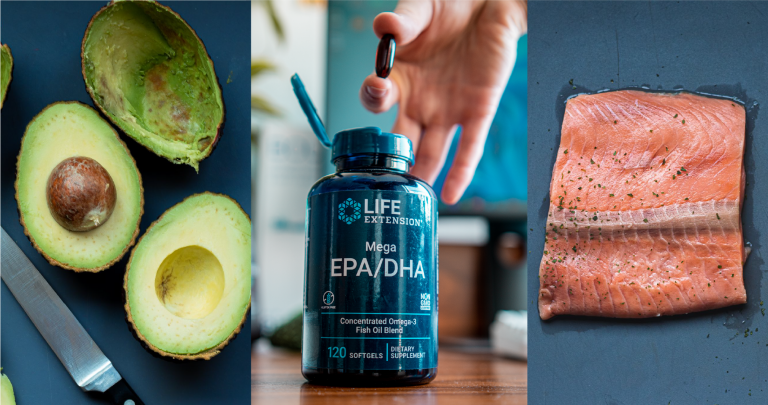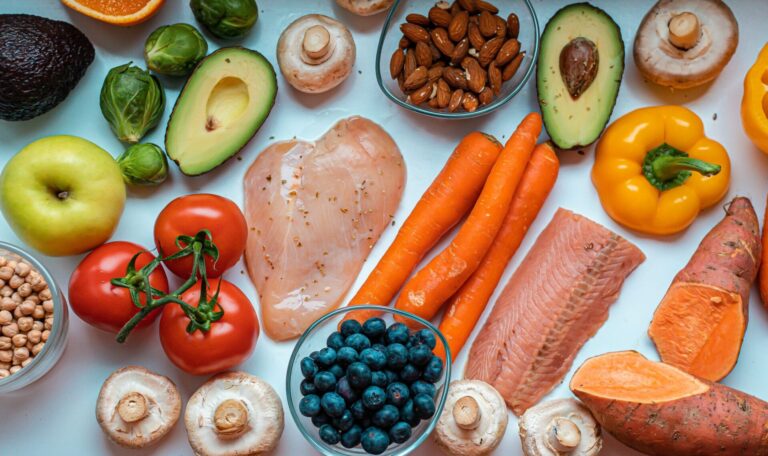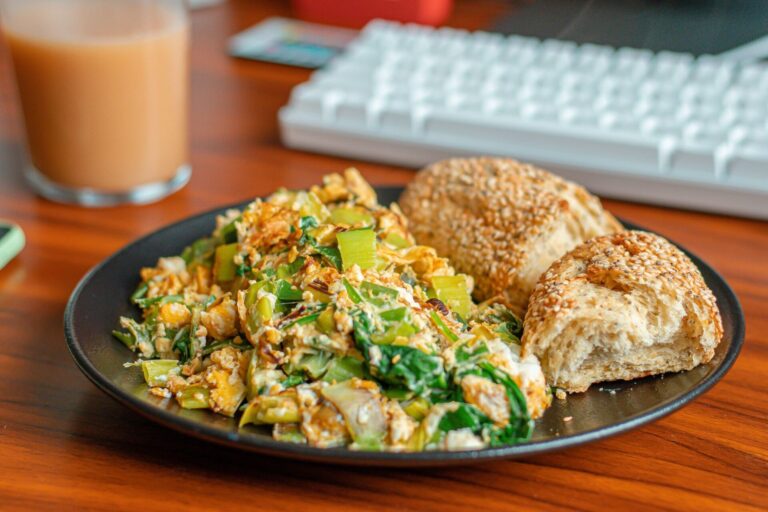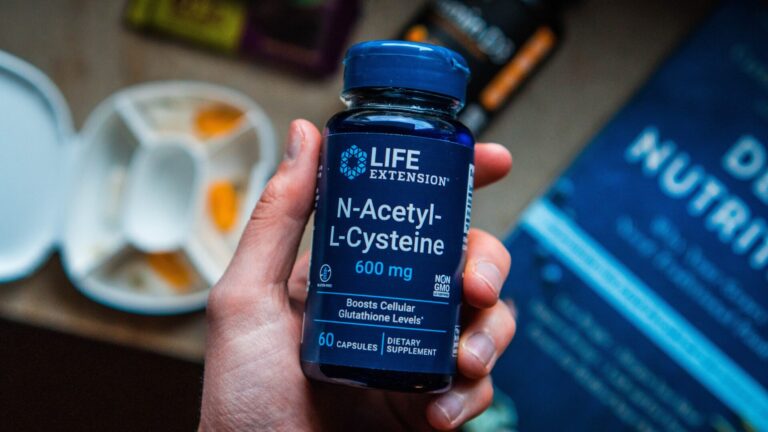Electrolytes for Cellular Hydration – Energy, Longevity & Performance
Keeping our bodies well-hydrated is essential to peak performance and health. Unfortunately, this requires a bit more than just drinking 8 glasses of water a day.
Electrolytes are the key minerals that support numerous physiological functions essential for energy production. This helps us properly hydrate our cells so we can run our internal systems on all 4-cylinders. It’s the vital spark we need to fuel our lives and improve our well-being.
Adding minerals to your water has been one of the key micro-hacks of many health enthusiasts, athletes, and biohackers alike. It seems that we finally understand the importance of proper hydration, and how to get there.
What Are Electrolytes
Electrolytes are essential minerals that carry an electric charge when dissolved in a liquid, such as water. (1) They support various functions in the body, from maintaining proper hydration to regulating nerve and muscle function.
The living force of life that enables us to live and function is carried through energy. The reason electrolytes are so important is they carry this electrical charge that helps us produce energy [ATP]. In the biohacking sphere, it’s crystal clear that increasing energy [efficiency] is the way to longevity and health.
Sodium, potassium, calcium, phosphorus, and chloride are some of the main electrolytes in the body. (2) These play critical roles in muscle function, bone health, and fluid balance.
Fun Fact: Minerals help improve both physical and cognitive performance. They’re essential for execution, in both the physical [muscle contractions, movement] and cognitive sphere [focus, memory, thinking].
The Function of Electrolytes
Our health determines how we function and feel. This greatly depends on the water content in the body. Electrolyte balance is critical for optimal hydration, oxygen transport, neuronal processes, and maintaining a healthy pH level. (3)
The body is made up of 60-70% water, 1/3 of which is extracellular [outside the cell] and 2/3 of which is intracellular [inside the cell]. Electrolytes play a crucial role in hydrating our cells. Water-only will hydrate us to some extent, but adding electrolytes [salts] to the mix helps hydrate our cells better and maintain this intra/extracellular fluid balance.
Here’s a list of the main electrolytes and their functions. (2)
Sodium [Na]
Potassium [K]
Calcium [Ca]
Magnesium [Mg]
Phosphorus [P]
Sodium [Na] – essential electrolyte in the extracellular fluid responsible for maintaining fluid volume and membrane potential of cells. *Below 135 mmol/L is too low [hyponatremia] and above 145 mmol/L is too high [hypernatremia]
Potassium [K] – it’s an intracellular ion, a part of our energy creation system [Na/K pump]. It supports nerve, heart, and muscle function as well as nutrient transport within the cell. *Hypokalemia is K under 3.6 mmol/l, (weakness, fatigue, muscle twitching), and hyperkalemia over 5.5 mmol/l.
Calcium [Ca] – calcium is key for nerve impulse transmission, so muscle contractions and brain function. Additionally, it is essential for bone strength, blood clotting, and hormone secretion.
Magnesium [Mg] – an intracellular cation involved in various enzymatic reactions, nerve function, energy metabolism, and neurotransmitter release. *Hypomagnesemia is under 1.46 mg/dL – usual for alcohol use, GI conditions, and renal loss.
Phosphorus [P] – extracellular fluid cation, present in about 85% of bones and teeth. Plays a crucial role in metabolic pathways, pH balance, and intracellular energy storage.
Conclusion
The main electrolytes in the body are sodium, potassium, calcium, magnesium, and phosphorus

Electrolyte Loss and Negative Effects
Electrolyte replenishment drinks are common for endurance athletes. This is because we lose precious electrolytes through sweating. This hypohydrated state increases the strain on our cardiovascular system, degrading aerobic performance. To refuel, we need not just plain water, but things like sodium and potassium to help hydrate our cells and retain fluids. (4)
Deficit in electrolytes can degrade performance and physiological functions. It can be detrimental to heart health, bone strength, muscle function, and blood glucose control, which is associated with numerous metabolic and cardiovascular diseases. (5) (3)
Insufficient levels of electrolytes lead to muscle fatigue and low energy faster, as ammonia and hydrogen ions accumulate. Further, this increases muscle cramps and results in weakness and fatigue. (6)
We can also lose electrolytes through severe caloric restriction, extended fasting, or a ketogenic diet. Part of the keto flu symptoms are actually due to deficits in minerals. This is why adding salts in such a scenario greatly affects energy levels and fights brain fog.
Conclusion
Electrolyte supplementation is recommended after sweating [intense exercise, sauna, or heat] and during fasting [low mineral foods or keto diet].
Cellular Hydration
Our body is made up of approximately 60% water, two-thirds of which is inside the cell. In general, males have greater amounts of water due to a higher % of muscle mass, relative to females. Water content tends to fall with age, so the older we are, the less water we hold. (7)
Being hydrated isn’t only about drinking enough water. As we sweat and urinate, there’s a net outflow of water from the body. The blood becomes thicker, and the urine becomes more concentrated, meaning there’s less dilution [water]. With this comes a transition of fluids from inside the cell, to the outside [extracellular space]. The body tries to maintain a stable pH or acid-base level so we can function properly. In such a state of dehydration, our cells lose water and start shrinking, or as we like to call it, malfunctioning.
Plain water won’t optimally rehydrate us. We’re aiming for more water inside the cell, so-called cellular hydration. To draw water inside the cells we need a good balance of electrolytes, especially sodium and potassium.
How well a specific beverage hydrates our bodies is determined by the BHI, which stands for beverage hydration index. This metric compares the hydration properties relative to water. Research shows that rehydration is in large assisted by electrolytes, as well as carbohydrates and dipeptides. (8)
Hypertension
There’s been a lot of controversy around sodium intake and cardiovascular health. Namely, sodium affects the expansion and shrinking of blood vessels, along with CNS function, which may, if consumed in excess lead to an increase in blood pressure. This is particularly true for hypersensitive adults, for whom special caution and limitations need to take place.
Scanning the research, we’ve combined a brief overview.
- 32 meta-analysis evaluated the risk of electrolytes on blood pressure and hypertension. Lowering sodium and increasing potassium exerted blood pressure-lowering effects, especially in hypersensitive patients. (9)
- Other research suggests that the evidence around sodium restriction for preventing cardiovascular mortality in those with normal and high blood pressure is inconsistent and weak. Additionally, sodium is important for regulating blood pressure, as it regulates extracellular fluid balance. All in all, increasing the potassium to sodium ratio may be a more important factor for heart health, than limiting the intake of sodium. (10)
- Sodium reduction, specifically reducing dietary salt intake has been proven a solid strategy for reducing blood pressure and consequentially, hypertension. Sodium helps retain water, alters endothelial function, and increases peripheral resistance, which can increase blood pressure. (11)
- Electrolyte imbalances are more common in older adults. Due to aging, the kidney undergoes degenerative changes that limit its functions like fluid balance, filtration, and regulating blood pressure. This highlights the importance of tracking electrolyte status in the elderly population. (12)

Electrolytes → Energy, Longevity and Performance
Within the sphere of anti-aging, the main focus is increasing energy. Higher energy efficiency means more movement, sharper cognition, and a longer life. It’s the antidote to aging. From a physiological standpoint, it makes sense. As humans age, life degrades. The organism becomes slower and less effective.
These charged particles like sodium (Na+) and potassium (K+) assist in energy creation. The presence of these electrolytes enables the conduction of electricity, which is essential for performing physiological functions. To transmit a nerve impulse means to contract a muscle → promoting movement. The same is true for organ function, thinking, digesting food, etc.
Fun Fact
Sufficient levels of electrolytes are going to support sharper cognition [thinking], promote movement [muscle contractions], and keep you alive [physiological functions]. It’s the key to peak performance.
Physical Performance
To walk, lift weights, or run, we rely on nerve signals. The CNS sends a signal to our muscles to contract, so we execute the movement.
With intense exercise comes fatigue, which is dependent upon the loss of electrolytes. Replenishing sodium, potassium, and magnesium is essential for maintaining optimal muscle function and reducing fatigue and muscle cramps.
Electrolytes aren’t an option, they’re essential for muscle contraction. It’s the fundamental nutrient that helps us move. In electrolyte-deficient states, adding minerals like sodium and potassium for athletes is recommended to optimize performance.
Cognition
The brain is made up of approximately 75-85% of water, a large portion of which resides in lipids. Proper hydration supports and enhances cognitive function.
On a physiological level, a sharp brain is a brain capable of facilitating the transmission of electrical signals between nerve cells. This is what thinking, memorizing, or focusing your attention depends upon. And guess what’s the foundation of a fast-firing brain? Yes, electrolytes.
Dehydration negatively affects various aspects of cognition, such as short-term memory, vigor, and attention. On the flip side, rehydrating properly alleviates fatigue, and improves memory, attention, and reaction speed. (13)
Mood is also highly affected by water, as in dehydration has been shown to cause cognitive deficits like memory loss and weaker visual perceptual abilities. Water consumption can replenish energy, and improve cognition, visual attention, and mood. (14)
Electrolyte deficits, or imbalance thereof lead to symptoms similar to fatigue. This translates to poor cognitive function, particularly decreased alertness and impaired memory.
Longevity
As stated before, longevity depends upon the ability to create energy and the ability of your cells to use it. Electrolytes facilitate various reactions in the body which are essential for sustaining life.
Magnesium is involved in over 300 enzymatic reactions in the body, including those related to DNA synthesis, protein synthesis, and energy production.
Potassium and calcium are involved in maintaining proper cardiovascular function, including regulating blood pressure and heart rhythm.
Pro tip
One hack to ensure an optimal cellular hydration status is adding electrolytes to your water. A good hack would be using Himalayan salt or electrolyte mix first thing in the morning with your large glass of water, to rehydrate after a good night’s sleep.
Exercise and Electrolyte Loss
The greatest need for electrolyte replenishment is within the realm of exercise. The hotter the environment, the more intense the exercise, and the longer its duration, the more electrolytes we lose. The main ones worth supplementing include sodium, potassium, and magnesium.
It’s believed that losing more than 2% of body mass through water, particularly in exercise that lasts longer than 90 minutes. However, negative effects have been reported with 0.5-0.7% as well. Athletes must reintegrate lost liquids afterward by drinking more water and supplementing electrolytes. (15) (13)
Dehydration increases the strain on our systems and degrades performance as more ammonia and hydrogen ions accumulate. This decreases muscle function and leads to cramps and weakness. (16)
Rehydrating after exercise or any intense sweating [sauna] should take place within 2 hours. Proper [cellular] rehydration requires minerals alongside plain water. Additionally, foods and drinks rich in sodium can help retain more body fluids. (17)
Hydration is one of the main challenges during extreme endurance events. There’s either dehydration or overhydration that results in electrolyte imbalance. Dehydration can increase the risk of kidney dysfunction, renal loss, and collapse. Overhydration is not good as well. Due to blood dilution [hyponatremia] it can cause lightheadedness, dizziness, and nausea. The key is to find the right ratio of electrolytes/water, to rehydrate properly. (18) This is about 300-600 mg/h for most endurance athletes. (19)
Conclusion
Dehydration or water loss above 2% of body mass degrades physical performance. Loss of electrolytes leads to fatigue, muscle weakness, and cramping. To rehydrate, endurance athletes should increase sodium intake with fluids to about 300-600 mg/h.
How to Replenish Electrolytes
Replenishing electrolytes can be done by eating electrolyte-rich foods, supplementing minerals directly, or drinking sports beverages like isotonic or hypertonic. drinks
How well a drink hydrates you is based on its hydration properties relative to plain water, the so-called beverage hydration index. Electrolytes seem to be the key to enhancing the hydration properties of a drink, along with carbohydrates and dipeptides. (20)
Replenishing electrolytes can be simply done by adding table salt or NaCl, which is sodium chloride, to water. (5) It’s the primary salt in seawater which closely matches the optimal ratio of Na to Cl in extracellular fluids, in the body.
So, the best way to add those electrolytes can include
- Table Salt (NaCl) into your water
- Sports drinks with higher amounts of sodium, potassium, and carbohydrates
- Potassium-rich foods – oranges, bananas or tomatoes
- Magnesium-creams – topically applied, helps with muscle relaxation
- Coconut water – rich in potassium and sodium, a natural sports drink
- Electrolyte tablets and powders
Minerals Daily → Optimize Health and Performance
Let’s take endurance events out of the way for a second. Most of us wake up relatively dehydrated in the morning. After several hours of not drinking water, while losing it through breathing and sweating, we’re dehydrated.
Drinking water first thing in the morning is a great way to recoup those water losses. Additionally, many would profit from adding electrolytes to the mix, whether a plain table salt or an electrolyte supplement. This helps rehydrate your cells, so you can kickstart your day on the right note. This increases energy levels, enhances performance, and improves focus, and well-being.
And oh, for the fasters out there, don’t worry. Minerals-only won’t break your fast. They’re not macronutrients. If you’re shopping for an electrolyte mix, watch out for sugar content. If your goal is to maintain your fasting state, the sugar content should be zero. And yes, it should be slightly salty, that’s what electrolytes taste like.
Conclusion
- Electrolytes are essential minerals that support various physiological functions in the body. Minerals like sodium, potassium, chloride, magnesium, and phosphorus literally keep us alive, functioning on all 4-cylinders.
- Dehydration degrades health, well-being, and performance. It can increase the risk of numerous cardiovascular and metabolic diseases. During extreme sweating [exercise, sauna] our blood becomes thicker, urine more concentrated, which is unhealthy. This leads to fatigue, weakness, and muscle cramps.
- Proper, cellular hydration focuses on replenishing not just fluids [water], but electrolytes [sodium, potassium] as well. This internal hydration keeps our cells well-hydrated and healthy, supporting their function.
- One great hack to fuel energy, support health and optimize performance is adding electrolytes to our water, first thing in the morning. For endurance athletes, options like table salt, electrolyte tablets or mix, sports drinks, magnesium creams, and potassium-rich foods are great alternatives.








